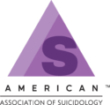Washington, D.C. (February 25, 2020) – The American Association of Suicidology (AAS) is proud to host AAS20, its 53rd Annual Conference, in Portland, OR at the Marriott Downtown Waterfront hotel, April 22 – 25, 2020. Thousands will be in attendance this year, once again making it the largest professional convening place for those who have been touched by suicide. Researchers, academicians, public health officials, prevention specialists and many more, will all join to establish effective strategies for addressing the rising suicide rate in this country. This year’s theme, Crossroads: Preventing Suicide and Creating Lives Worth Living, guided the programming, which was built on a framework of equity.
“AAS has made it a priority to center the voices of black, indigenous, and people of color, not only during the presentations at AAS20, but throughout the development of the program for years to come,” said Dr. Jonathan Singer, President of AAS. “For the field of suicidology to truly begin to make a difference, not just in terms of rates of suicide, but regarding ethical considerations of treatment and prevention, we must first acknowledge the long-standing inequity of services and resources in this country.”
In one of our most inclusive and diverse lineups ever, speakers and subject matter experts featured during our plenary and keynote sessions will address how equity has (and has not) played a role in the prevention, intervention, and postvention of suicide in the US, both historically and currently. The Press Kit highlights this incredible array of speakers.
“We’re welcoming key leading voices with backgrounds in science, research, lived experience, and those with clinical expertise, to start breaking down these barriers between disciplines and to strike at the heart of suicide,” said Colleen Creighton, AAS CEO. “By clearing the way for real conversations to happen, for real work to be done, we can be more effective in understanding the causes behind suicide. Those conversations, that work, all begins here at AAS.”
We have an opportunity to be open to new ideas, new approaches, and to engage with unfamiliar scientific, cultural, and community-based approaches examining and highlighting suicide prevention in ways we never would have imagined. In order to move forward in a way that is inclusive and centers diverse experiences, it is necessary to explore some of the tensions underlying our field. Disparities exist in suicide prevention, not just in rates of suicidal thoughts and behaviors, but in leadership, representation, research, funding, and in the data we prioritize. In order to prioritize equity, we must intentionally re-dedicate ourselves to doing this work with equity and inclusivity.
At AAS20, we will sharpen our focus and highlight new voices. Specifically, we will honor those transformed by suicide, present innovative research and intervention practices, while integrating social trends to chart new, cohesive and efficient paths to reduce suicide and create a world worth living in. This is our opportunity to make lasting changes to our field and we look forward to you joining us.
In 2018 there were 48,344 suicide deaths in the US, an age adjusted rate of 14.2 per 100,000 population. In the same year there were nearly 1.2 million suicide attempts.
For the Media: Responsible reporting on suicide, including stories of hope and resilience, can prevent more suicides. Please visit the Suicide Reporting Recommendations for more information.
About AAS: The American Association of Suicidology is the world’s largest membership-based suicide prevention organization. Founded in 1968 by Edwin S. Shneidman, PhD, AAS promotes the research of suicide and its prevention, public awareness programs, public education and training for professionals and volunteers. The membership of AAS includes mental health and public health professionals, researchers, suicide prevention and crisis intervention centers, school districts, crisis center volunteers, survivors of suicide loss, attempt survivors, and a variety of laypersons who have in interest in suicide prevention. You can learn more about AAS at www.suicidology.org.
